#A comprehensive list of famous 50+ African gods names and meanings
Explore tagged Tumblr posts
Text
A comprehensive list of famous 50+ African gods names and meanings
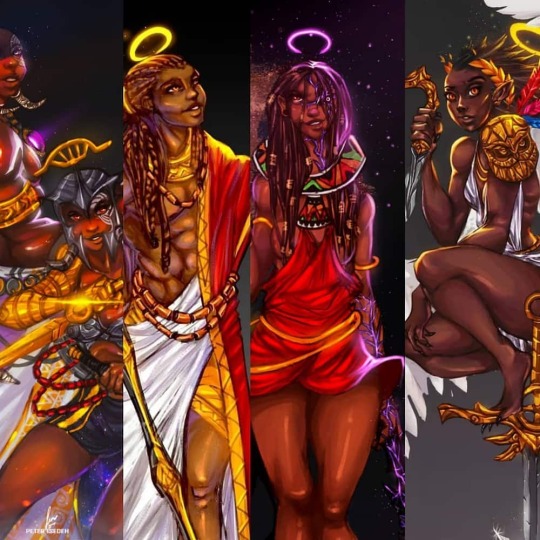
African communities have so many gods and goddesses, and each one has its own role to play in life. Some gods and goddesses are for wealth, war, health, healing, protection, death, evil, creation, and so on. Africans who believe in these gods consider it essential to worship and adore these gods and goddesses to have a good and smooth life.
Even though the larger religions such as Christianity and Islam have made big inroads in the African continent, the African gods and goddesses are still worshipped today. Here are the names of African gods:
African god of war
Ogun - Ogun is a god of war who defends the Yoruba tribe and is depicted wearing armor and red eyes.
Kibuka - Kibuka is the Buganda god of war who secures victory in war by taking the form of a cloud, which hovered above his enemies and rained spears and arrows.
Age-Fon - During the days of wars and battles, Agé was called upon to protect and give strength to the warriors, leading them on which paths to take.
Menhit - The war goddess was believed to advance ahead of the Egyptian armies and cut down their enemies with fiery arrows.
Tano - He is the goddess of war and strife for the Ashanti people.
Apedemak - The Nubian lion-headed warrior god.
Takhar - He is the god of justice or vengeance. He is a demi-god in Senegal's Serer religion and is worshipped to protect believers against injury, bad omens, and abuse.
Maher- Ethiopian god of war
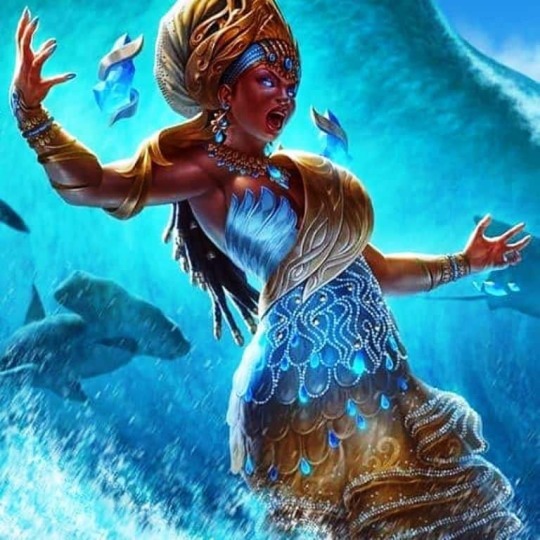
Shango - Shango is the Yoruba god of war and thunder. Oral tradition describes him as powerful, with a voice like thunder and a mouth that spewed fire when he spoke.
Oya - She is the wife of Shango. Oya is a ferocious and protective deity worshipped by the Yoruba. She is the goddess of wind, thunderbolt, and fire.
African god of wealth
Mukasa - He is the brother of Kibuka, the god of war. His main oracular sanctuary was found on an island in Lake Victoria. This god provides rain, food, and cattle.
Oko - Oko is the god of agriculture and fertility. He came to Earth and lived on a small farm, growing some of the most beautiful and delicious fruits and vegetables.
Olokun - Olokun is believed to be the parent of Aje, the orisha of great wealth. He gives great wealth, health, and prosperity to his followers.
Aje - Aje is a traditional goddess of abundance and wealth, often associated with the business of the marketplace in the Yoruba religion.
Oshun - Oshun is a divine being associated with love and fertility, as well as financial fortune in the Yoruba religion.
Ikenga - Ikenga is a personal god of human endeavor, achievement, success, and victory. He is grounded in the belief that a man's power to accomplish things is in his right hand.
Anyanwu - This is the goddess of the sun. She is revered as the goddess that promotes productivity, hard work, and overall positive well-being.
Njoku Ji - This is the guardian deity of yam in Igboland. She is prayed to for productivity during the farming season.
Mami Wata - Mami Wata is famous as the African god of money. The goddess has the power to bestow good fortune and status through monetary wealth.
Wamala - He is the god of wealth and prosperity.
Anayaroli - He is the god of wealth.
Ashiakle - She is a famous goddess of wealth and prosperity in West Africa.
Abena - She is known as the river goddess. Her name is associated with gold, brass, as well as with other wealth symbols.
African god of healing
Agwu - Nsi - This is the god of health and divination. This god is one of the basic theological concepts used to explain good and bad, health and sickness, poverty, and wealth in Igboland.
Osanyin - He is the Yoruba Orisha of herbalism, and he possesses the powers to cure all diseases.
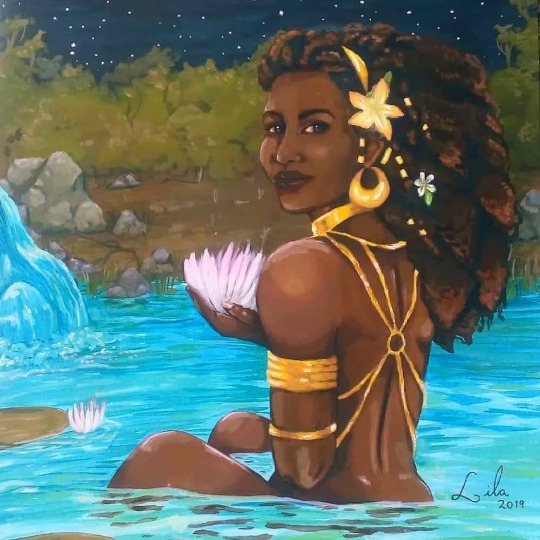
Xu - He is the sky god of the Bushmen in South Africa. Xu is usually invoked during an illness.
Aja - Aja is a powerful healer in Yoruba legend. It is said that she is the spirit who taught all other healers their craft.
Babalu Aye - Babalu Aye is an Orisha often associated with plague and pestilence in the Yoruba belief system. Just as he is connected with disease and illness, he is also tied to its cures.
African evil gods
Amadioha - This is the most popular god in Igboland. He is the god of thunder & lightening. Amadioha is considered a gentleman among the deities and the cruelest when annoyed.
Adroa - Adroa is the god of death with two characters: good and evil. His body is split into two. One half is short and black, which represents evil, while the other half is tall and white and depicts goodness.
Gaunab - He is the Xhosa and Khoikhoi evil god. He is responsible for all misfortune, disease, and death.
Modimo - He represents all the good things. Yet, in the same breath, he had the power to destroy things and bring about natural disasters and devastation.
Ogo - He is the chaos god among the Dogon. Ogo is a horrifically awful trickster god, the embodiment of chaos, and a rebel of horribleness.
African god of death
Anubis - Anubis, the guardian of the dead, is one of the most well-known Egyptian gods. He's mainly depicted as a dog-like figure and leads the dead to Ma'at, where their hearts are weighed.
Ogbunabali - Literally meaning "the one that kills at night." He is known as the death deity. Ogbunabali is known to kill violently.
Gamab - Gamab lives in the sky and directs the fate of mankind. When it's time for someone to die, Gamab gets out his bow and shoots them down with an arrow.
Oya - She is also a goddess of death. Oya is the guardian of the gates of death, as she helps the dead in their transition from life.
African god of creation
Mbombo - Mbombo is the creator god in the mythology of the Kuba people. It is believed that Mbombo was alone, darkness and primordial water covered all the earth. He felt an intense pain in his stomach and then vomited the sun, the moon, and stars.
Olorun - He is the ruler of the sky and the creator of the sun.
Obatala - He is the creator of humans, mountains, valleys, forests, and fields.
Unkulunkulu - He grew from reeds and brought with him people and cattle. Upon his own creation, he created the earth and all of its creatures.
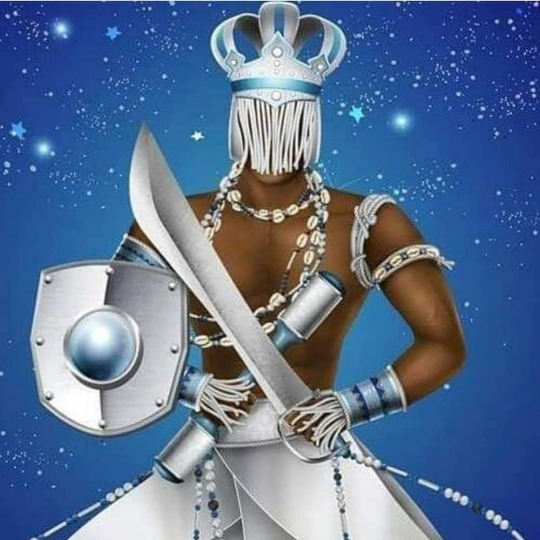
Ra - The sun god arose from Nun, a chaotic body of water that was the only thing in existence. He independently gave birth to Shu, the god of air, and Tefnut, the water goddess. They then produced Geb and Nut, the god of the earth and the goddess of the sky, respectively. The first humans to exist were from Ra's tears.
Kaang - He is the creator god of the universe, according to the San people.
Nana - Buluku - Nana Buluku is the mother of Mawu-Lisa and the goddess of creation. She is associated with the sun and moon.
Odomankoma - This is the name Akan-language speakers use to describe the eternal entity who deserves the credit for the work of creation, including creating the concept of trinity.
Modjaji - She is a South African goddess of rain whose spirits live in a young woman's body. The goddess is considered a key figure as she can start and stop the rain.
African god of fertility
Ala - She is the most respected god in Igboland. The goddess represents the earth, fertility, creativity, and morality.
Oshun - She is one of the most powerful of all orishas in the Yoruba religion. She is associated with water, purity, fertility, love, and sensuality.
Asase Ya - Asase Ya is the Earth goddess of fertility of the Ashanti people of Ghana. She is the wife of Nyame, the Sky deity, who created the universe.
Mbaba Mwana Waresa - She is the Zulu goddess of fertility.
Denka - He is the Dinka god of fertility.
Yemaya - She is the childbirth goddess in the Yoruba religion. She is considered the mother of all since she is the goddess of the living ocean.
Who is the most powerful African god?
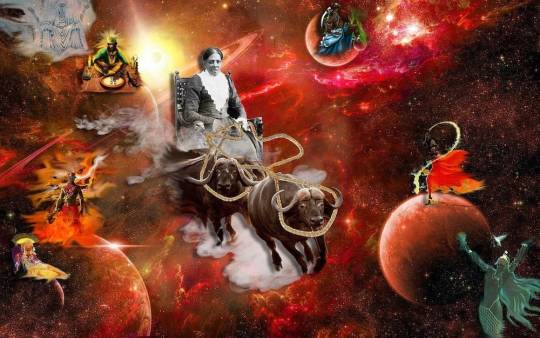
Oshún is a Yoruba orisha, daughter of Yemoja, a Nigerian river goddess. She is the protector of the family and pregnant women. Oshun is typically associated with water, purity, fertility, love, and sensuality. She is considered one of the most powerful of all orishas in the Yoruba religion. She possesses human attributes such as vanity, jealousy, and spite.
There you have it. A comprehensive list of African gods' names and meanings. With the introduction of larger religions such as Islam and Christianity, the concept of African deity is slowly losing its meaning. However, some ethnic communities still believe in and worship these gods and goddesses even today.
Tuko.co.ke published an article about the list of major religions in Africa. Before the white man came to Africa, the African people had a doctrine. Little is known about the ancient African religions. However, it is a fact that all doctrines have common features such as belief in a supernatural power, the belief of life after death and the beliefs surrounding burial.
Research shows that the majority of citizens in Nigeria and Africa as a whole are devoted Christians. The African continent has a variety of religions practised across all regions. In Africa, religiosity has a big influence on arts, culture, lifestyle and traditions of its people.
3 notes
·
View notes